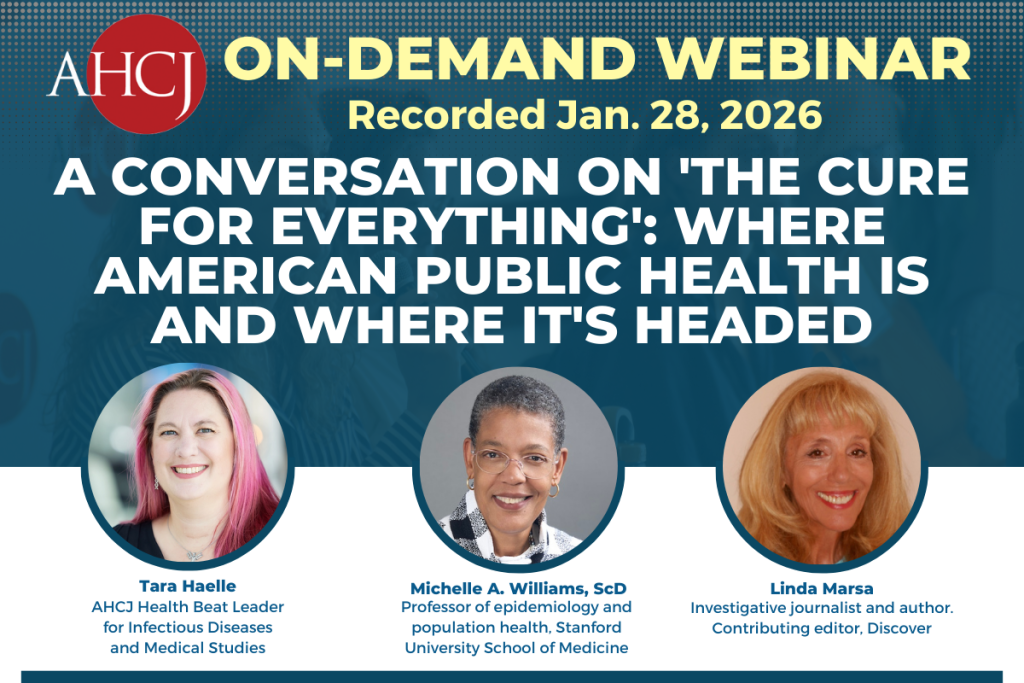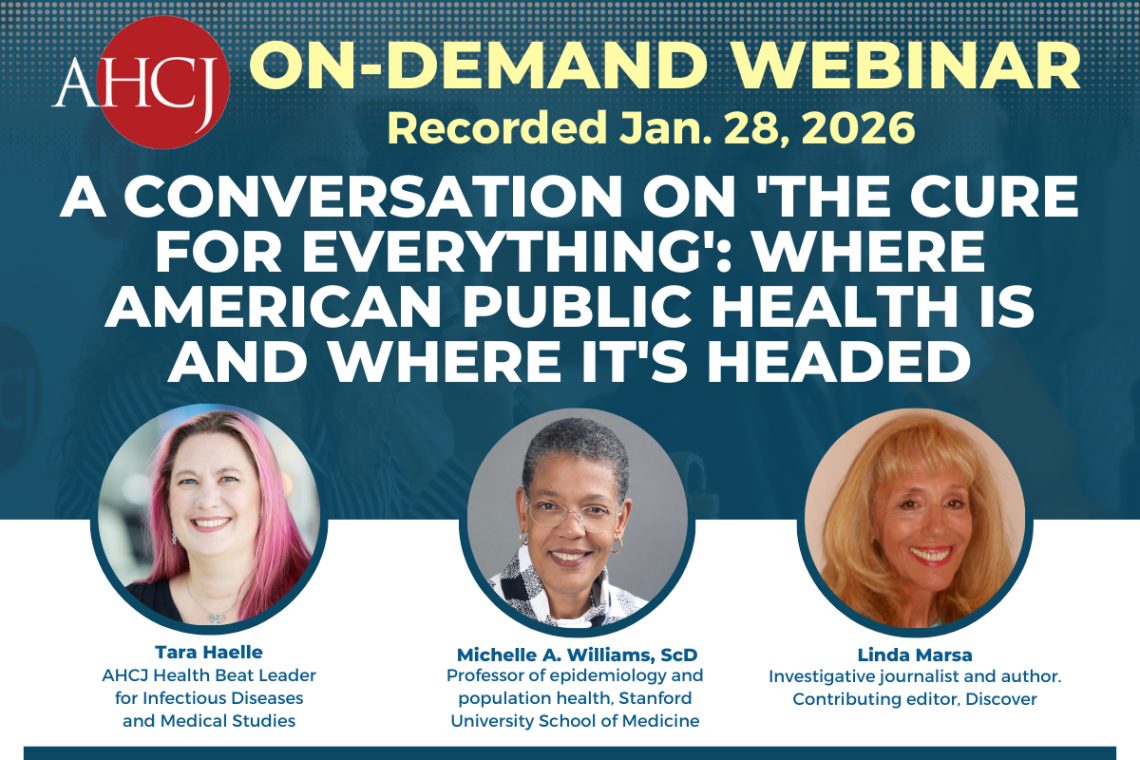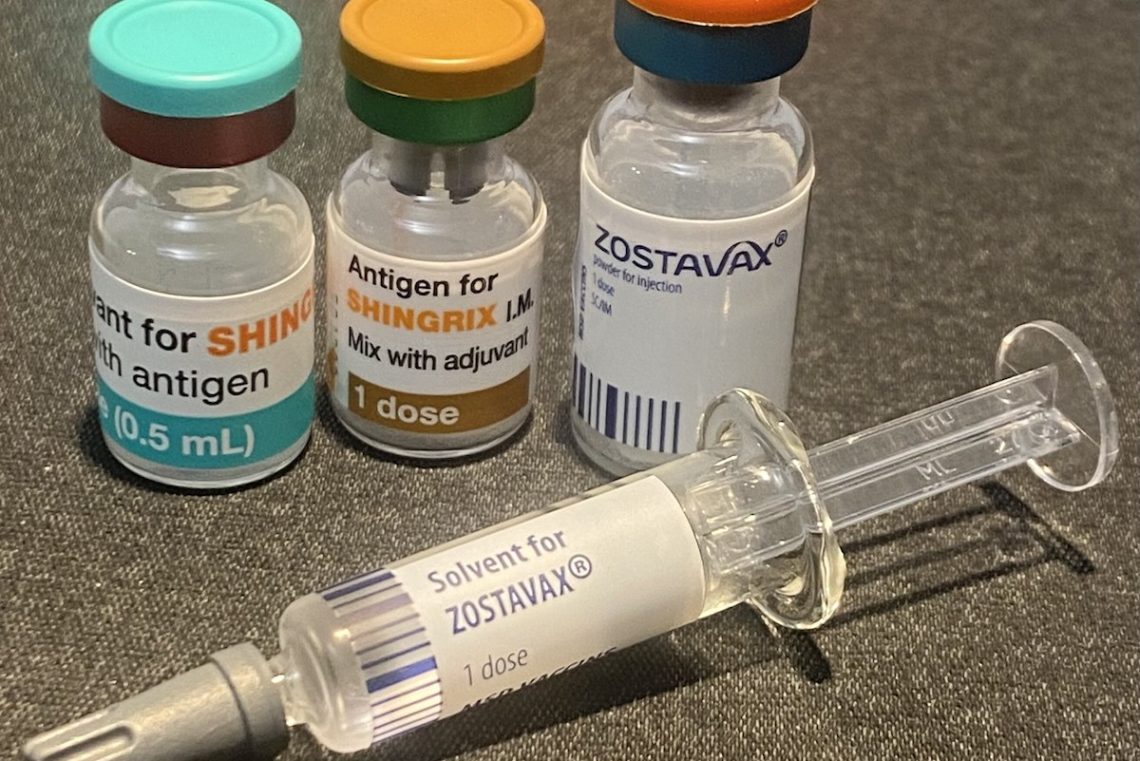Health Beat
Monitoring the Pulse of Health Care Journalism
Ad
-
How to care for your mental health over the next few years
A second Trump administration will likely make health reporters’ jobs more chaotic (again). Here’s how journalists — and a psychologist…
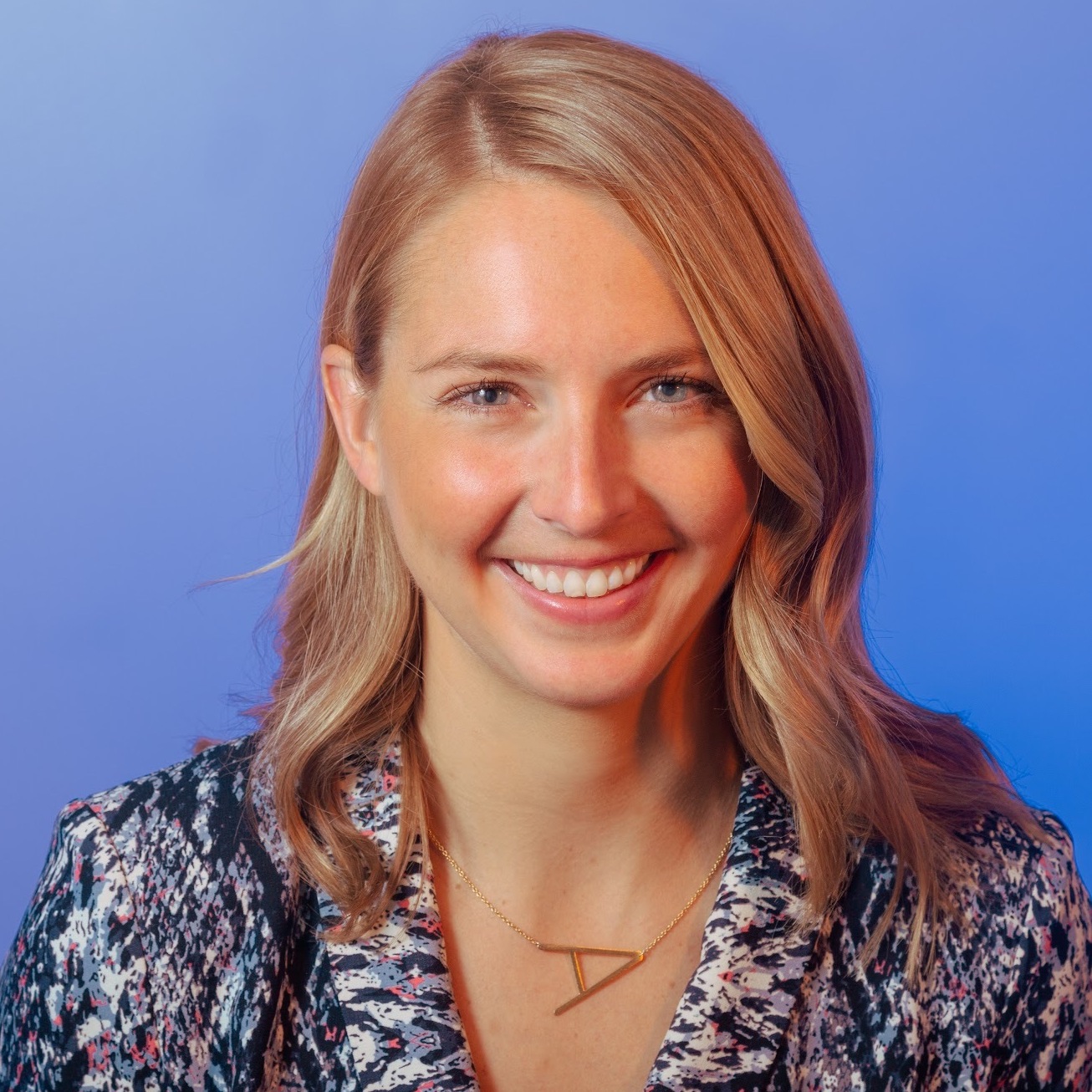
-
Maine becomes 22nd state with a red flag law
Maine voters passed the state’s first red flag law in November, creating a legal pathway to temporarily prevent someone in…

-
Letter from Minneapolis: No ‘normal’ in journalism, right now
In this personal account, Minneapolis-based AHCJ member Sheila Eldred reflects on listening to fear and grief up close.
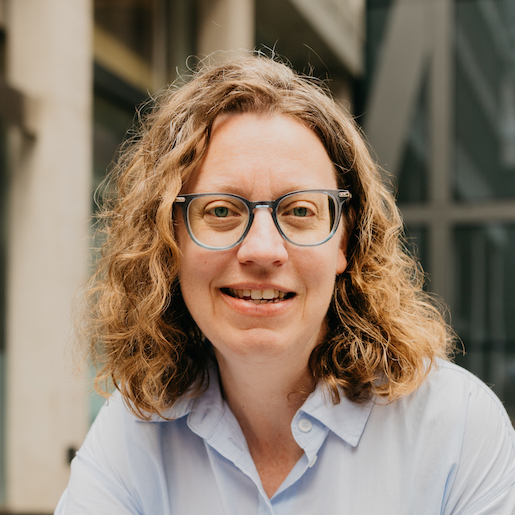
-
How to advocate for yourself as a freelance journalist
During January’s Lunch and Learn, freelancers swapped tips on advocating for better pay, clearer boundaries and more time.

-
A conversation on ‘The Cure for Everything’: Where American public health is and where it’s headed
In this webinar, Michelle Williams will share lessons from her book “The Cure for Everything” that could inspire story ideas…

-
Stories to cover as Americans seek affordable health insurance
Following the expiration of Affordable Care Act tax credits on Dec. 31, many Americans are struggling to pay for health…

-
AHCJ stands with Minneapolis
A message of support from the AHCJ Board President and Executive Director ahead of the Health Journalism 2026 conference May…

-
Shingles vaccine may slow biological aging, new study suggests
New research shows a link between slower biological aging among people who received the shingles vaccine compared to those who…

-
Why children’s exposure to intimate partner violence needs more coverage
Intimate partner violence is a major public health crisis in the U.S. that needs more coverage — especially its impact on…

-
3 fun and creative ways freelancers can celebrate their work
Performance reviews are all well and good, but whacky parties, cheeky awards and short getaways are a lot more fun.

-
Utah becomes first state to allow AI prescription refills: What to know
Utah is now the first state to allow residents to allow AI prescription refills — without needing to speak with…

Featured Resources
Work the Health Beat.
Get exclusive news and training opportunities from AHCJ in your inbox once a week.



